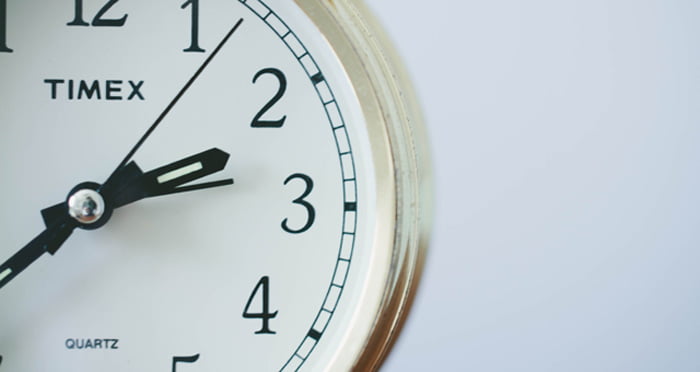Judges are more lenient then too

If you have ever wondered why it was that you did better than you expected in your equity and trusts module as a law undergrad, or worse than you had anticipated in tort, then you might well have been simply following the rules of timing.
In a new book called When: the Scientific Secrets of Perfect Timing, bestselling author Daniel H Pink, argues that “timing is everything” in our lives. Using research from psychology, biology and economics, he argues that we all need to think about not only the “how” but also the “when” of the various activities that we do and of the decisions we make.
The book cites research by a Harvard professor and two Danish researchers looking at the success of Danish schoolchildren in passing public tests. Students scored higher in the mornings than in the afternoons.
Pink writes: “For every hour later in the day the tests were administered, scores fell a little more.” A test in the United States (where Pink is from) found a similar pattern in relation to maths tests for schoolchildren.
The research on test performance was for schoolchildren and, of course, law students may respond very differently. But it is not only schoolchildren for whom timing is everything.
The time of day also affects the decisions judges make. Research by three social scientists in 2011 (outside of the United Kingdom) looked at the rulings from parole boards to investigate whether timing had any effect on judicial decisions. It concluded, writes Pink:
“[J]udges were more likely to issue a favourable ruling — granting the prisoner parole… in the morning than in the afternoon.”
So if this is a real THING, the question is: should all of us readjust our working lives to mornings only?
Let’s start with exam-taking. Legal Cheek approached a number of law schools to find out what factors were at play when universities schedule their exams.
The response was that their priority lies in the volume of exams which students may face and making sure there is a limit as to how many they must sit in a specific period of time.
For instance, at Cardiff University: “[Our] guidelines stipulate that students should not expect to sit more than one three-hour exam or two exams of two hours per day. They should not sit more than 12 hours of exams in any week and final year students should not expect to sit more than nine hours of exams in any four days,” a spokesperson told Legal Cheek.
Kate Gregory, teaching timetabler at the University of Sussex, told us:
“Timetabling exams is a complex process with numerous practical factors to consider… Some exams need to run concurrently, whereas others must be spaced apart. We, like most universities, use timetabling software to calculate the best timetable to accommodate these factors.”
So it looks as if having a policy of morning-only exams may yet be some way off. But there may be a simpler method of ensuring that law students can achieve their best even if their exam is in the afternoon.
Here’s why.
In both the cases of schoolchildren and judges, the research was more complicated than it first appears because it also showed that having a break from a task (or test) was also absolutely key to performance. In the case of the Danish students, when they had a 20 to 30-minute break before a test where they could “eat, play, and chat … their scores did not decline. In fact, they increased… Scores go down after noon. But scores go up by a higher amount after breaks.”
For the judges, the pattern was similar. Judges in the parole board research had two breaks over the course of the day. Pink explains: “Immediately after the first break, for lunch, they become more forgiving.”
So there you have it. No need to rejig the timetable, just make sure we all have time for lunch and a siesta.
